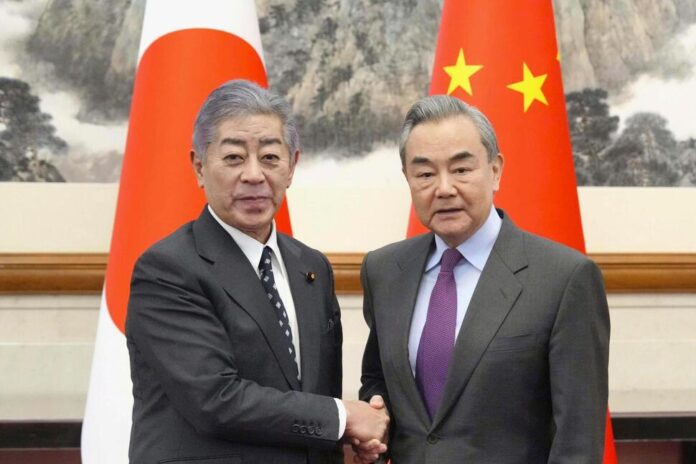China and Japan have agreed to hold talks on security issues in a bid to improve their often tense relationship. This decision comes as both nations navigate a complex history of disputes and look for ways to strengthen cooperation.
High-Level Meetings Signal Progress
Japanese Foreign Minister Takeshi Iwaya visited China for the first time since taking office. His discussions with Chinese Premier Li Qiang and Foreign Minister Wang Yi were described as productive and candid. Both sides expressed a willingness to address mutual concerns and enhance bilateral ties.
During the talks, China agreed to send Wang Yi to Japan next year for an economic dialogue. The agenda will include collaboration on environmental issues, energy conservation, and health care.
Addressing Security Concerns
Despite the progress, significant security issues remain. Japan raised concerns about China’s military activities near disputed islands in the East China Sea. Known as the Senkaku Islands in Japan and the Diaoyu Islands in China, these territories have long been a point of contention.
China’s broader territorial disputes in the South China Sea were also a topic of discussion. Japan called for improved communication through a newly proposed security dialogue, which China agreed to establish.
Trade and Economic Agreements
Economic cooperation featured prominently in the talks. Japan urged China to lift a ban on Japanese seafood imports. The ban was imposed after Japan began releasing treated water from the Fukushima nuclear plant into the ocean.
Both sides agreed to continue working on this issue and discuss resuming Japanese beef and rice exports to China. In a positive step, Japan announced an easing of visa requirements for Chinese tourists, allowing group tours to stay for up to 30 days.
People-to-People Exchanges
Improving people-to-people connections is a shared goal. Japan extended the validity of multiple-entry tourist visas for Chinese visitors from five to ten years. Both nations hope increased tourism will help foster understanding and improve relations.
However, Japan raised concerns about attacks on Japanese citizens in China and the detention of Japanese businesspeople accused of spying. These issues have made some Japanese hesitant to visit or work in China.
Historical Challenges and Current Context
China and Japan’s relationship has been shaped by historical grievances and territorial disputes. Efforts to mend ties gained momentum after Chinese President Xi Jinping and Japanese Prime Minister Shigeru Ishiba met at the Asia-Pacific Economic Cooperation summit in Peru. Both leaders emphasised the need for cooperation and stability. Chinese officials described the current period as critical for improving bilateral relations.
Global Implications
The timing of these talks is significant. U.S. President-elect Donald Trump is set to take office in January, bringing uncertainty to global relations. Trump has threatened to increase tariffs on Chinese goods, potentially reigniting trade tensions.
Japan’s alliance with the United States has also evolved under President Joe Biden, with a focus on countering China’s influence in the region. As Japan boosts its military capabilities, it seeks to balance its security concerns with the goal of fostering stability in Asia.
Future Prospects
The agreement to hold security talks is a positive step for China and Japan. However, both sides must navigate complex issues, including territorial disputes and economic concerns.
Strengthening their relationship will require consistent dialogue, mutual understanding, and tangible actions to address key challenges. As global tensions rise, the success of these efforts could have a significant impact on regional and international stability.
China and Japan are taking small but meaningful steps toward a more cooperative future. Whether they can overcome historical challenges and build lasting trust remains to be seen.

